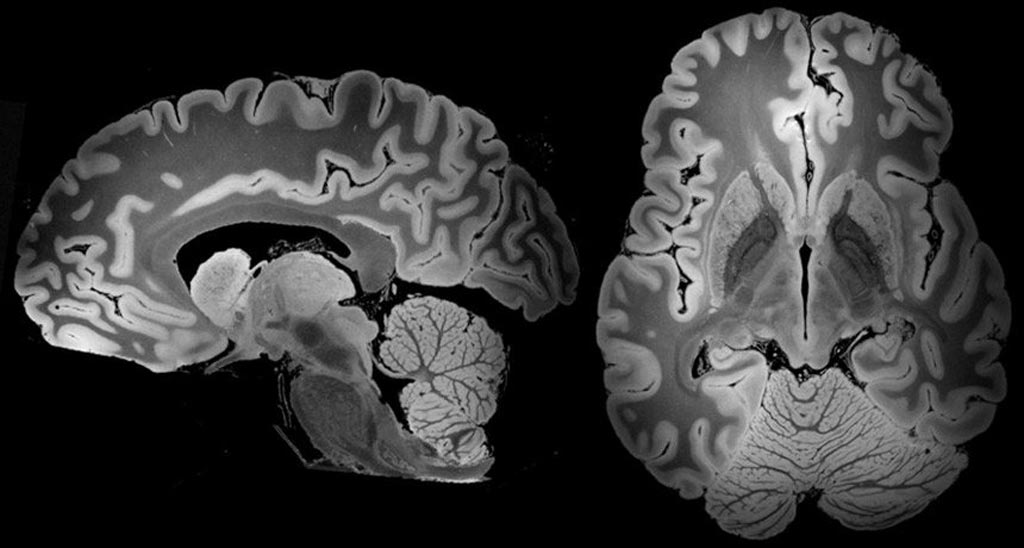Researchers have developed an ultra-high resolution 7 Tesla magnetic resonance imaging (MRI) scanner that is capable of capturing brain images with up to 10 times more detail than current scanners. This breakthrough in imaging technology is expected to significantly enhance the study of the human brain and help researchers gain a better understanding of brain disorders.
The newly developed NexGen 7T scanner, which was described in a recent publication in the journal Nature Methods, allows scientists to see functional MRI (fMRI) features as small as 0.4 millimeters, compared to the 2 or 3 millimeters that can be visualized with current scanners. This increased resolution opens up new possibilities for studying the underlying changes in brain circuitry associated with a wide range of brain disorders, including degenerative diseases, schizophrenia, and developmental disorders such as autism spectrum disorder.
The improved resolution of the scanner enables neuroscientists to observe the neuronal circuits in different regions of the brain’s neocortex and track the flow of information from one area of the cortex to another as the brain engages in various cognitive processes. This can potentially lead to better diagnostic methods and the identification of new biomarkers for mental disorders, allowing for earlier diagnosis and more targeted therapies.
One of the key features of the NexGen 7T scanner is its ability to differentiate activity in different cell layers of the cortex. By pinpointing fMRI activity to specific depths in the cortex, researchers can track the flow of information throughout the brain and gain insights into how different brain disorders manifest at a cellular level. This capability is particularly valuable for studying developmental and mental disorders such as dyslexia, autism, and schizophrenia, as well as neurological disorders like dementia and stroke.
The improvement in resolution was achieved through a collaborative effort between Siemens and a team of researchers led by David Feinberg from the University of California, Berkeley. The scanner incorporates a greatly improved gradient coil and larger receiver array coils, which detect brain signals. These enhancements, combined with a higher signal from the 7T magnet, result in a significantly higher signal-to-noise ratio and faster data acquisition.
The NexGen 7T scanner also has the potential to revolutionize the field of functional imaging by providing researchers with a more precise and detailed understanding of how information is represented in the brain. This could have significant implications for the diagnosis and treatment of mental disorders, which currently rely on behavioral observations rather than functional measures.
While the cost of the NexGen 7T scanner is considerably lower than the $22 million required to build the first prototype, it is still a custom-built machine that requires modification of existing 7T scanners. However, Siemens and MR CoilTech Ltd. plan to disseminate the technology developed by UC Berkeley to make it more widely available.
In conclusion, the development of the ultra-high resolution 7T MRI scanner represents a major step forward in our ability to study the human brain. With its unprecedented level of detail, this new scanner has the potential to transform our understanding of brain function and provide new insights into the causes and mechanisms of various brain disorders.
*Note:
- Source: Coherent Market Insights, Public sources, Desk research
- We have leveraged AI tools to mine information and compile it

